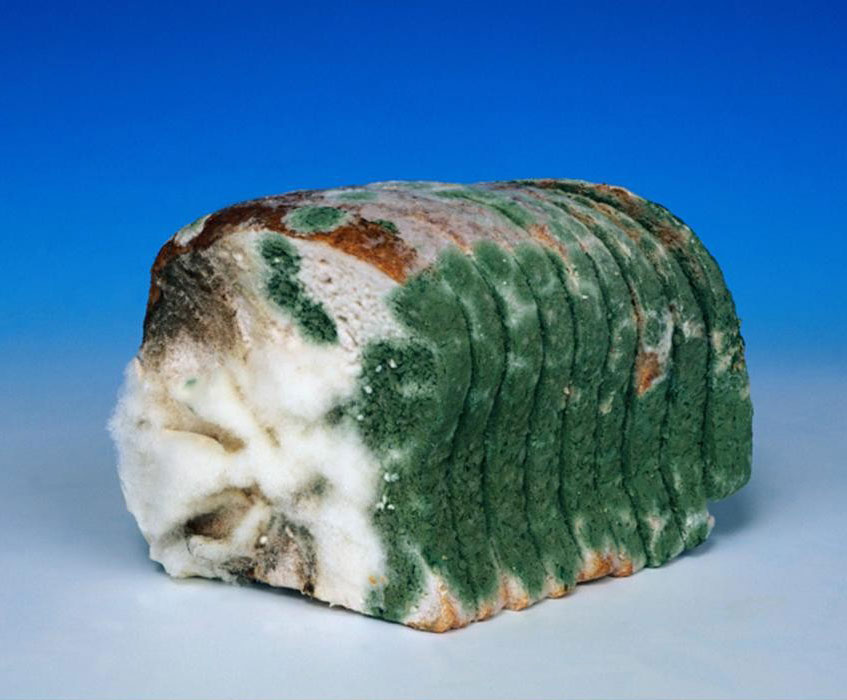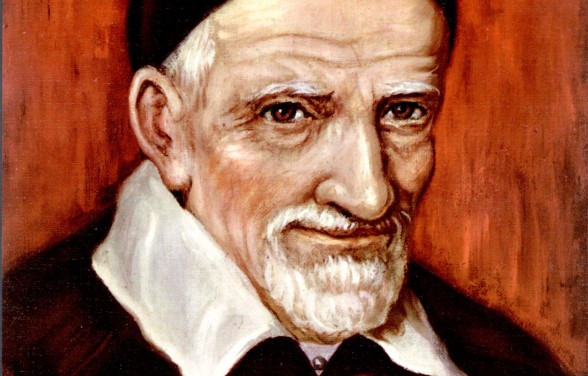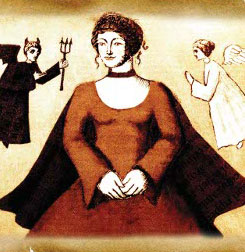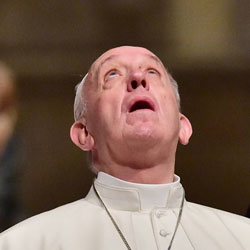On Tuesday, Ballarat’s Courier published an article about St Columba’s Parish in Ballarat North.
Hundreds of parishioners were surveyed. Almost half had no objection to homosexual behaviour and supported gay marriage. An overwhelming majority supported IVF and favoured divorce and remarriage without annulment.
I bet this article resonates with every one of us. We all struggle with the “hard sayings” of Christ and his Church. That’s why they’re called “hard sayings.” The parable of the wheat and the darnel addresses this.
Darnel is a common weed in the Middle East. It resembles wheat so closely that even the farmer’s practiced eye cannot distinguish it until the stalks begin to mature. Darnel is toxic to humans, and if mixed with wheat flour, it will ruin bread.
Many Church Fathers understand the darnel to be a metaphor for false doctrine, which is not easy to distinguish from the truth, especially at the beginning. But when error is allowed to flourish, it has catastrophic effects on the people of God.
We can see how relevant this parable is today. While Christians have slept, the enemy has sown bad seed with impunity. There’s practically no truth of the Catholic Faith which hasn’t been undermined.
The Courier quoted a parish spokesman, whose words are a good mix of wheat and darnel. Consider this quote from the article:
I’ve always found the Catholic Church to be a rather broad umbrella in which a multitude of views are contained. It seems to me that some non-Catholic commentators see Catholics as unthinking automatons, blindly following decrees from the top. I don’t think it’s ever been like that, to be honest. People have always made up their own minds, and continue to do so.
The Church is a broad umbrella. Catholic means, “here comes everybody.” And Catholics can’t be unthinking automatons. Blind servility offends God. He gave us reason, and He gave us freedom, and we honour God when we exercise these gifts.
But, as Catholics we are also obliged to assent to our Lord’s teachings, and the teachings of his Church. St Peter is our model in this. When Jesus insisted we must eat his flesh and drink his blood to gain eternal life, many of his disciples left him. It was a moment of crisis in our Lord’s public ministry.
He turned to the apostles, who were probably as bewildered as everyone else. Maybe even scandalised. “What about you?” he said to them. “Do you want to go away too?”
Peter spoke for the Twelve. He speaks for us too. “Lord, to whom shall we go? You have the words of eternal life.”
This is our model of assent. Blind servility, no. Humble faith, yes. When we struggle with one teaching or another, we can’t accept it without thinking, but nor are we free to discard it. We must grapple with it. Pray with it. Ask for Peter’s faith.
Here’s something else the parishioner said:
A lot of people, as we become more educated, are accepting of the modern realities of life. It’s not enough to say “you’ve done this wrong and we don’t agree.” It’s about how we continue to include people who are part of our family or part of the Church … not cutting them off because of their sexuality or decisions.
How true. Isn’t that the crux of our Lord’s parable?
When you weed out the darnel you might pull up the wheat with it. Let them both grow till the harvest.
Even while we insist on the truth of our faith, and reject false doctrine, we never write people off, or abandon relationships. We must keep open the channels of grace. It’s not our task to weed out the darnel. Occasionally, it is the task of the Church to “isolate” parts of the crop.
Pope Francis did this last year, when he excommunicated an Australian priest who defiantly celebrated public Mass when his faculties were withdrawn, and repeatedly endorsed gay marriage and the ordination of women. He isolated another part of the crop last month, when he declared members of the mafia were excommunicated.
Excommunication isn’t a nice business, but this act of quarantine takes seriously the second part of today’s Gospel:
At harvest time I shall say to the reapers: ‘First collect the darnel and tie it in bundles to be burnt, then gather the wheat into my barn.’
Darnel ruins bread and false doctrine ruins souls, so we must be judicious. Where is the darnel in my own heart and mind?






Hey! He’s alive! lol 🙂 Welcome back!
Those kind of stories, about our church today, always depress me. So, thanks for this reflection.
Good this blog is up and running! Tough topic to begin! Well life wasn’t meant to be easy! I was going to write a comment last week but the comments were off! I was going to write about the Grand National Hurdle last week! The winner was Sea King! Keep well from Simon the Pieman.
Hi Father! Great artical!
the survey results should be a wake up call to the Bishops that doctrine and Catechesis need to be preached from the Pulpit as well as be taught in its entirety within the Catholic school system. My children are the only practicing Catholics within the Catholic School they attend, and it is very frustrating when other children say to them that God does not really exist, I wonder why the parents send the children to the school in the first place. We have to explain to our kids that these children hold these views because their parents have never been taught the faith.
As a family we read the Sunday Gospel before the kids went to bed , after reading we asked our 9 year old son what it meant, he responded “the weeds are those who choose to be bad and do not follow God and are burnt in a fire like those souls who find themselves in hell, and the wheat is gathered and taken into the barn which is like heaven”. when children are taught the faith it is a beautiful thing indeed.
Isn’t it time to call a spade……………? Surely the two emeritus bishops of Ballarat Diocese must be pondering their culpability for the abysmal community attitudes revealed by that survey in allowing a ‘dumbed down’ RE catechesis, in which the ‘hard stuff’ was removed, to creep into diocesan schools during the last 30/40 years, along with the seriously misguided experiential teaching method. While no doubt permitted in good faith, the result has been caring and charitable graduates from our schools who know very little else about their faith and so are unable to withstand the social engineering pressure aimed at de-Christianising our traditional cultural values. I recently asked two of our years 9 & 10 Catholic school-educated grandchildren what they knew of ‘purgatory’ to which they replied ‘heard of it, pop, but don’t know what it means’! I rest my case.
Very good article! Paul spends most of his epistles trying to correct false doctrine which had crept into the early church, and its still poisoning the church today.
Unfortunately though, the interpretation of the Parable of the Wheat and Tares presented above is an example of false teaching! The parable is not a metaphor for ‘correct doctrine’ and ‘false teaching.’ Jesus himself explains the meaning of the parable very clearly a few verses later in Matthew 13: 36-42. The wheat is the godly people, and the tares are evil people.
So while the main point the article made is right, there’s another lesson here. Lets not try to apply our own interpretations to parables and teachings where Jesus himself has already given us the actual intended meaning. If the church leaders can’t get teachings right which are quite clear in The Bible, its unsurprisingthat the church as a whole will have doctrinal issues.
Thanks Hayden for your thoughtful comments. We may have to agree to respectfully disagree. The beauty of parables is that their applications are myriad and inexhaustible. Hence the Church Fathers applying the wheat and tares as I have described.
Parables can of course be misinterpreted to subvert our Lord’s teaching, but that doesn’t limit the number of legitimate interpretations which correspond with explicit doctrine. I think the only measure of doctrine is truth and falsity, rather than fidelity to the literal. (Though I’d add, of course, that since our faith is incarnational, the literal and historical truth is sometimes non-negotiable.)